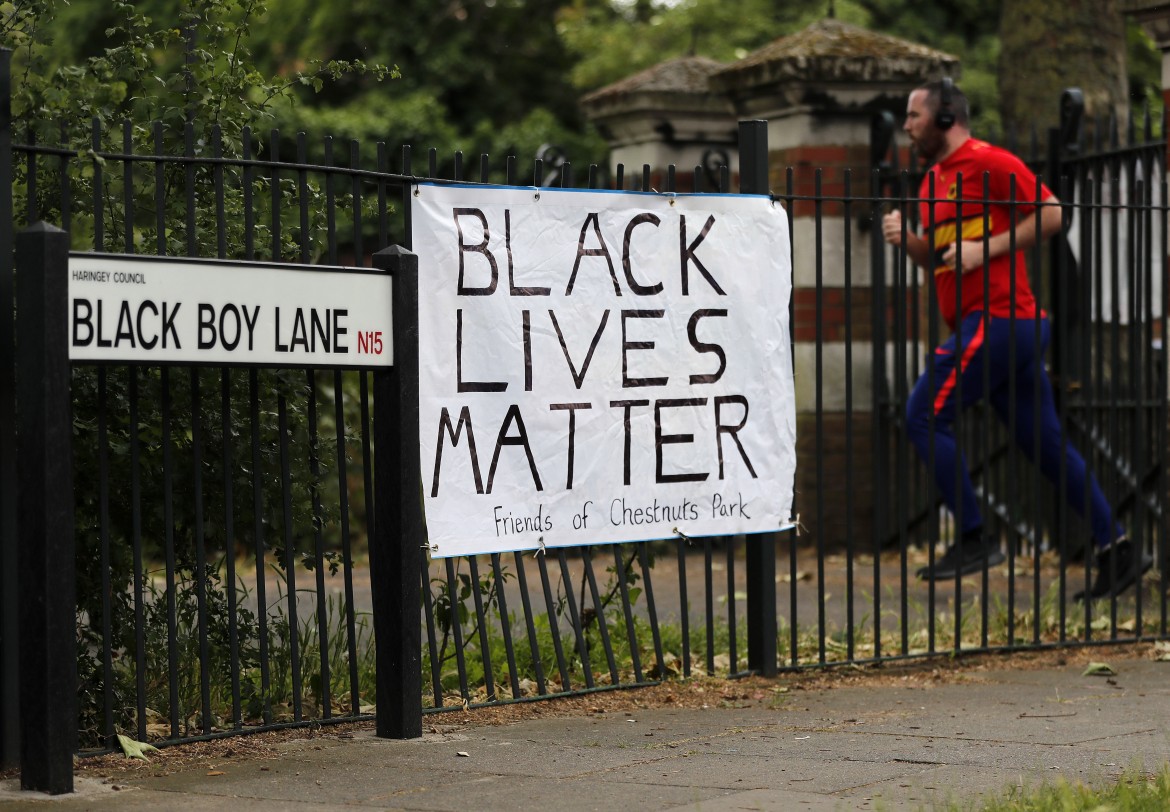Analysis
London is ready to clean up its imperial monuments and place names
After demolishing the enslaver Edward Colston’s statue in Bristol, other effigies now find themselves in the viewfinder. London Mayor Khan announced a project to review colonial place names and monuments.

After four days and four nights spent in the muddy waters of Bristol harbor, the statue of Edward Colston, the 18th century philanthropist-cum-slave trader, which had adorned the streets of the city for over a century, was returned to dry land in a careful salvage operation.
Black Lives Matter protesters tossed it in there on Sunday as they took to the streets in Bristol, alongside many other British cities, to demonstrate against the racism and police brutality that had caused the death of George Floyd in the United States. Now, it looks like the bronze effigy, after undergoing cleaning, will be placed in a museum. The red graffiti written on it has not yet been removed, nor have the cables with which it was taken off its pedestal.
In the meantime, the episode has given rise to an overall reexamination of the UK’s “monument politics,” which is just a forerunner to an all-round political and cultural battle. As the history of the country—just like that of all European countries, of course—is riddled with figures who are questionable, to say the least, and whose vileness has been elegantly ignored when not concealed entirely, it is no wonder that the list of monuments to be targeted is a long one, and that it includes several that could be removed beforehand in a fully legal manner.
In addition to the already highly controversial statue of the rapacious imperialist Cecil Rhodes, which watches over the bustle of hardworking college students from an alcove on the facade of Oriel College in Oxford—a statue which has already survived a protest in 2016, and whose removal has been clamorously demanded once again—there is now another illustrious figure whose monumental heritage is at risk: the founder of the Boy Scouts, Robert Baden-Powell (1857-1941).
His faults go far beyond merely inflicting the Boy Scouts on the world—who have been poignantly described as “little kids dressed like schmucks following a big schmuck dressed like a kid,” in a phrase sometimes attributed to George Bernard Shaw—in addition to standard-issue racism, Baden-Powell also showed a healthy dose of homophobia and support for the Nazis.
The statue, erected 12 years ago, perilously close to the seafront at Poole, near Bournemouth, where the joyous Boy Scout adventure began, should indeed be removed as a precautionary measure, but the initiative has already provoked strenuous resistance, with a collection of signatures by Baden-Powell sympathizers, especially conservatives.
Among the characters who have become less and less palatable because of their connections with the buying and selling of human beings, there is no lack of illustrious Prime Ministers from the British past, such as William Gladstone (1809-1898), who will no longer lend his name to one of the buildings of the University of Liverpool. Avowedly acting in the name of the most selfless love for the principles of justice—while his family owned plantations in the Caribbean where slaves worked—the liberal statesman worked tirelessly to fight the scourge of abolitionism, even though he knew that he would receive a ton of cash in compensation for the “economic damage” that the abolition of slavery would deal to the family business.
London is not just standing by either: on Thursday, the statue of another enterprising slave trader, Robert Milligan, was removed from the area in front of the Museum of London Docklands. In the meantime, Mayor Sadiq Khan has announced a review of all the monuments and street names in the city.
Originally published at https://ilmanifesto.it/monumenti-e-toponomastica-da-impero-londra-vuole-ripulirsi/ on 2020-06-12
